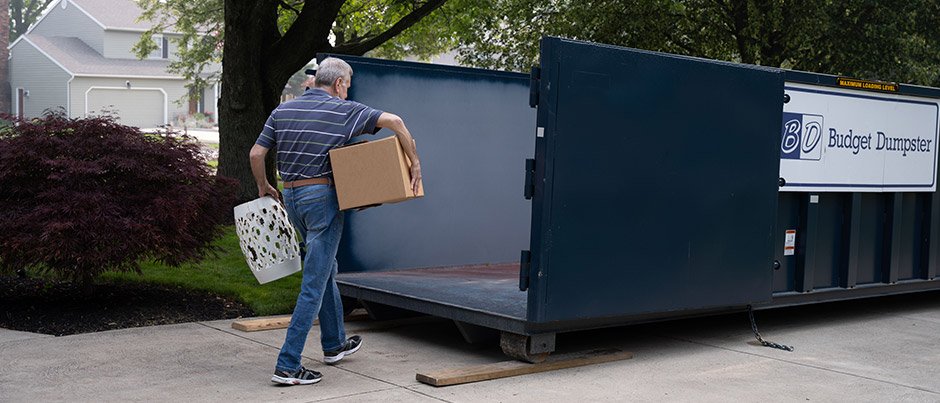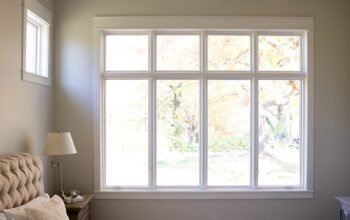Residential dumpsters play a crucial role in effective waste management for households. Whether you are undertaking a home renovation, spring cleaning, or simply need a solution for ongoing waste disposal, residential dumpsters offer a convenient and efficient option. These large containers are designed to handle various types of waste, making them ideal for homeowners who need to dispose of large amounts of debris. Understanding the benefits and proper use of residential dumpsters can help you manage your waste more effectively, ensuring a cleaner and more organized living environment.
Understanding Residential Dumpsters
Definition and Purpose
A residential dumpster is a large waste container designed for temporary use at residential properties. These dumpsters are typically rented for short periods to handle specific waste disposal needs, such as home renovations, cleanouts, or yard work. They come in various sizes to accommodate different volumes of waste. The primary purpose of a residential dumpster is to provide homeowners with a convenient and efficient way to dispose of large quantities of waste that cannot be handled by regular trash collection services.
Common Sizes and Types of Residential Dumpsters
Residential dumpsters come in a range of sizes, typically measured in cubic yards. Common sizes include 10-yard, 20-yard, 30-yard, and 40-yard dumpsters. The 10-yard dumpster is suitable for small projects like garage cleanouts, while the larger sizes are ideal for more extensive renovations or large-scale cleanups. Dumpsters can also vary by type, including roll-off dumpsters, which are delivered and picked up by a truck, and front-load dumpsters, which are often used for ongoing waste disposal services. Choosing the right size and type depends on the amount and nature of the waste you need to dispose of.
Benefits of Using Residential Dumpsters
Efficient Waste Management
One of the primary benefits of using a residential dumpster is the efficiency it brings to waste management. With a large, designated container on-site, you can easily dispose of waste as you work on your project. This eliminates the need for multiple trips to the local dump or waiting for curbside pickup. The convenience of having a dumpster available ensures that waste is handled promptly and does not accumulate, keeping your property clean and organized.
Convenience for Large Cleanup Projects
Residential dumpsters are particularly useful for large cleanup projects. Whether you are decluttering your home, clearing out a garage, or undertaking a significant renovation, a dumpster provides a centralized location for all waste. This makes the process more manageable and less time-consuming. You can focus on the task at hand without worrying about waste disposal logistics, allowing you to complete your project more efficiently.
Environmental Benefits
Using a residential dumpster can also have environmental benefits. By properly disposing of waste, you reduce the risk of illegal dumping and ensure that materials are handled in accordance with local regulations. Many dumpster rental services also offer recycling options, allowing you to separate recyclable materials from general waste. This promotes sustainable practices and helps reduce the overall impact on landfills, contributing to a cleaner and healthier environment.
When to Use a Residential Dumpster
Home Renovation Projects
Home renovation projects often generate a significant amount of waste, from old fixtures and fittings to construction debris. A residential dumpster provides an ideal solution for managing this waste. Having a dumpster on-site allows you to dispose of materials quickly and easily, keeping your work area safe and tidy. It also ensures that waste is handled in compliance with local regulations, avoiding potential fines or penalties.
Spring Cleaning
Spring cleaning is another situation where a residential dumpster can be incredibly useful. As you go through your home, clearing out clutter and disposing of unwanted items, a dumpster provides a convenient place to put everything. This is especially helpful for larger items that cannot be left out for regular trash collection. With a dumpster, you can tackle your spring cleaning more efficiently, ensuring that all waste is properly disposed of.
Moving to a New Home
Moving to a new home often involves getting rid of items you no longer need or want. A residential dumpster can simplify this process, giving you a place to dispose of unwanted belongings as you pack. This is particularly helpful for bulky items like furniture or appliances. Having a dumpster on-site during your move ensures that you can declutter effectively, making the transition to your new home smoother and more organized.
Yard Waste and Landscaping Projects
Yard waste and landscaping projects can generate a large amount of debris, from tree branches and grass clippings to soil and rocks. A residential dumpster is an excellent solution for managing this waste. By having a dumpster on-site, you can easily dispose of yard waste as you work, keeping your outdoor space clean and organized. This is particularly useful for larger projects, such as tree removal or major landscaping overhauls.
How to Choose the Right Residential Dumpster
Assessing Your Waste Disposal Needs
Choosing the right residential dumpster starts with assessing your waste disposal needs. Consider the type and volume of waste you will be generating. For smaller projects, a 10-yard dumpster may be sufficient, while larger projects might require a 30-yard or 40-yard dumpster. Understanding the scope of your project and the amount of waste involved will help you select the appropriate size.
Understanding Different Dumpster Sizes
Residential dumpsters come in various sizes, each suited to different types of projects. A 10-yard dumpster is typically used for small cleanouts or minor renovation projects, while a 20-yard dumpster can handle larger cleanups and medium-sized renovations. For extensive projects, such as major home remodels or large-scale cleanouts, a 30-yard or 40-yard dumpster may be necessary. It’s important to choose a size that can accommodate all your waste without overflowing.
Considering the Type of Waste
Different types of waste may require different types of dumpsters. For example, construction debris may need a heavy-duty dumpster, while general household waste can be disposed of in a standard dumpster. Some dumpsters are designed to handle specific materials, such as yard waste or recyclables. Knowing the type of waste you will be disposing of can help you choose a dumpster that meets your needs.
Budget Considerations
Cost is another important factor when choosing a residential dumpster. Prices can vary based on the size of the dumpster, the rental duration, and the type of waste. It’s essential to get quotes from multiple rental companies and compare their rates. Additionally, be aware of any additional fees, such as overage charges for exceeding weight limits or extra days. Understanding your budget and the costs involved will help you make an informed decision.
Renting a Residential Dumpster: What to Expect
How to Find a Reputable Dumpster Rental Service
Finding a reputable Residential dumpster is crucial for a smooth rental experience. Start by researching local companies and reading customer reviews. Look for companies with a good reputation for reliability and customer service. It’s also helpful to ask for recommendations from friends or family who have used dumpster rental services before. A reputable company will provide clear information about their services, pricing, and policies.
Rental Process: Booking, Delivery, and Pickup
The rental process typically involves booking the dumpster, arranging for delivery, and scheduling pickup. When booking, provide detailed information about your project and the type of waste you will be disposing of. The rental company will help you choose the right dumpster size and schedule delivery to your location. Once the dumpster is delivered, you can begin loading it with waste. After your rental period ends, the company will pick up the dumpster and dispose of the waste.
Costs and Fees Associated with Dumpster Rental
Understanding the costs and fees associated with dumpster rental is essential for budgeting. Rental fees are usually based on the size of the dumpster and the rental duration. Be aware of additional charges that may apply, such as overage fees for exceeding weight limits, extended rental periods, or disposal fees for certain types of waste. It’s important to clarify all costs upfront with the rental company to avoid any surprises.
Permits and Regulations
Depending on your location, you may need a permit to place a dumpster on your property or on the street. Check with your local government or homeowners association to determine if a permit is required. Additionally, be aware of any regulations regarding the placement and use of dumpsters, such as restrictions on certain types of waste or placement near utility lines. Following local regulations ensures that your dumpster rental is compliant and avoids potential fines.
Tips for Effective Dumpster Use
Loading the Dumpster Efficiently
To maximize the space in your dumpster, load it efficiently. Start by placing larger, heavier items at the bottom and filling in gaps with smaller items. Break down bulky items to save space, and avoid overfilling the dumpster, as this can lead to additional fees or difficulties in pickup. By organizing your waste carefully, you can ensure that you make the most of the available space.
Avoiding Prohibited Items
It’s important to know which items are prohibited from being disposed of in a residential dumpster. Common prohibited items include hazardous materials, such as chemicals, paint, and batteries, as well as electronic waste and certain appliances. Check with your rental company for a complete list of prohibited items. Disposing of these items properly ensures safety and compliance with local regulations.
Ensuring Safety During Use
Safety should be a priority when using a residential dumpster. Keep the area around the dumpster clear to prevent accidents, and avoid overloading the dumpster to the point where waste spills over. Be cautious when lifting heavy items, and use proper lifting techniques to avoid injury. If you are unsure about how to safely dispose of certain materials, consult your rental company for guidance.
Maximizing Space
To get the most out of your residential dumpster, try to maximize the available space. Break down large items, such as furniture and boxes, to create more room. Fill in gaps with smaller items, and avoid placing items haphazardly. By organizing your waste efficiently, you can ensure that you have enough space for all your debris without needing to rent an additional dumpster.
Environmental Considerations
Recycling and Disposing of Waste Responsibly
Recycling and responsible waste disposal are essential for minimizing environmental impact. Separate recyclable materials, such as paper, cardboard, and certain plastics, from general waste. Many dumpster rental companies offer recycling options, making it easier to dispose of materials sustainably. Properly disposing of waste helps reduce the amount of waste that ends up in landfills and promotes environmental sustainability.
Choosing Eco-Friendly Dumpster Rental Services
When selecting a dumpster rental service, consider choosing a company that prioritizes eco-friendly practices. Look for companies that offer recycling services and use environmentally friendly disposal methods. Some companies may also have initiatives to minimize their carbon footprint, such as using fuel-efficient vehicles or supporting local environmental projects. Choosing an eco-friendly rental service helps reduce the environmental impact of your waste disposal.
Impact of Improper Waste Disposal
Improper waste disposal can have significant environmental consequences. Dumping waste illegally or disposing of hazardous materials improperly can harm wildlife, pollute water sources, and contribute to air and soil contamination. By using a residential dumpster and following proper disposal guidelines, you can help protect the environment and ensure that waste is managed responsibly.
Common Misconceptions About Residential Dumpsters
Residential Dumpsters are Only for Construction Sites
One common misconception is that residential dumpsters are only for construction sites. In reality, they are suitable for a wide range of projects, including home renovations, cleanouts, and yard work. Homeowners can benefit from the convenience and efficiency of using a dumpster for various waste disposal needs, making it a versatile solution for many situations.
Renting a Dumpster is Too Expensive
Another myth is that renting a dumpster is prohibitively expensive. While there are costs involved, renting a dumpster can be a cost-effective solution compared to other waste disposal methods, especially for large projects. By comparing quotes from different rental companies and understanding the fees involved, you can find a rental option that fits your budget.
All Waste Can Go into a Residential Dumpster
A common misconception is that all types of waste can be disposed of in a residential dumpster. However, there are restrictions on certain items, such as hazardous materials and electronic waste. It’s important to understand what can and cannot be placed in the dumpster to ensure compliance with regulations and avoid additional fees. Always check with your rental company for a list of prohibited items.
Conclusion:
Residential dumpsters provide a convenient and efficient solution for managing large amounts of waste during home projects. By understanding the benefits, proper use, and environmental considerations, you can make informed decisions about renting a dumpster. Whether you are renovating, moving, or simply decluttering, a residential dumpster can help you manage waste effectively, ensuring a cleaner and more organized living environment.




